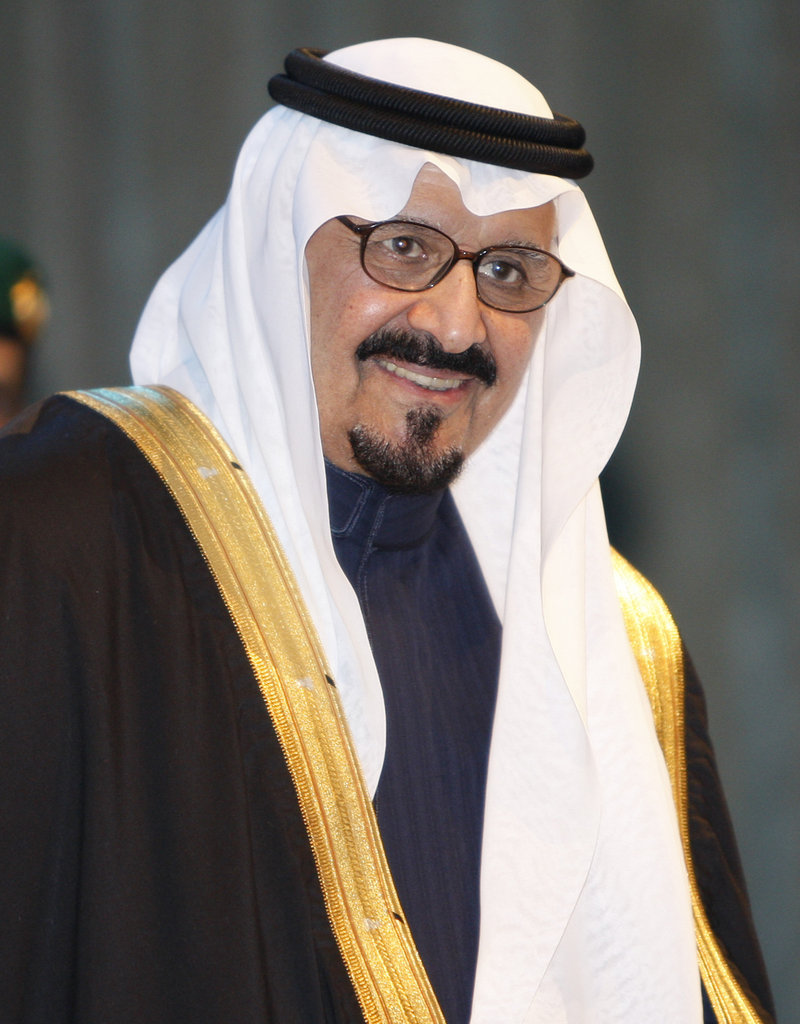RIYADH, Saudi Arabia – Saudi Arabia’s ruling monarchy moved into a critical period of realignment Saturday after the death of the heir to the throne opened the way for a new crown prince: most likely a tough-talking interior minister who has led crackdowns on Islamic militants but also has shown favor to ultraconservative traditions such as keeping the ban on women voting.
A state funeral is planned for Tuesday in Riyadh for crown prince Sultan bin Abdul-Aziz Al Saud, who died in New York at the age of 80 after an unspecified illness, the official Saudi Press Agency said.
Now, Saudi rulers are expected to move quickly to name the new king-in-waiting — royal protocol suggests it will be Sultan’s half brother, Prince Nayef.
NOT AN ADVOCATE FOR WOMEN
Moving Nayef to the top of the succession ladder would not likely pose any risks to Saudi Arabia’s pro-Western policies and, in particular, its close alliance with Washington.
But Nayef cuts a much more mercurial figure than Saudi’s current leader, the ailing King Abdullah, who has nudged ahead with reforms such as promising women voting rights in 2015 despite rumblings from the country’s powerful religious establishment.
Nayef, 78, has earned U.S. praise for unleashing security forces against suspected Islamic extremist cells in Saudi Arabia, which was home to 15 of 19 of the Sept. 11 hijackers.
Yet he brought blistering rebukes in the West for a 2002 interview that quoted him as saying that “Zionists” — a reference to Jews — benefited from the Sept. 11 attacks because it turned world opinion against Islam and Arabs.
Nayef also has expressed displeasure at some of Abdullah’s moves for more openness, saying in 2009 that he saw no need for women to vote or participate in politics. It’s a view shared by many Saudi clerics, who follow a strict brand of Islam known as Wahhabism. Their support gives the Saudi monarchy the legitimacy to rule over a nation holding Islam’s holiest sites.
“Nayef is more religious, and is closer to the Saudi groups who are very critical of the king’s decisions regarding women and other steps he’s taken to balance out the rigid religious practices in society,” said Ali Fakhro, a political analyst and commentator in Bahrain.
NAYEF A LIKELY SUCCESSOR
But it remains doubtful that Nayef — if ever made king — would outright annul Abdullah’s reforms, which include the establishment of a coed university. More likely, Nayef would put any further changes on hold, said Abdulkhaleq Abdulla, a political affairs professor at Emirates University.
“It’s not good news for Saudis or for the region,” he said. “(Nayef) is the security guy. He is the mukhabarat (secret police) guy. He is the internal affairs guy.”
Although it’s not certain that Nayef will be selected to succeed Sultan, the signs point clearly in that direction.
After Sultan fell ill in 2009, Nayef was named second deputy prime minister, traditionally the post right behind the crown prince. For the first time, however, the mechanism of picking the next No. 2 in the royal succession is not entirely clear.
WHAT HAPPENS NEXT
Traditionally, the king names his successor. But this time it is possible that Abdullah will put the decision to the 33-member Allegiance Council, composed of his brothers and cousins. Abdullah created the council as part of his reforms and gave it a mandate to choose the heir.
Abdullah formed the council in order to modernize the process and give a wider voice. When it was created, it was decided that the council would choose the heir for the first time when Sultan rose to the throne, and his crown prince would need to be named. But it was not specified whether it would be used if Sultan died before the king.
The choice of whether to convene the council now will likely be made by Abdullah, 87, who is currently recovering from his third operation to treat back problems in less than a year.
Sultan is survived by 32 children from multiple wives. They include Bandar, the former ambassador to the U.S. who now heads the National Security Council, and Khaled, Sultan’s assistant in the Defense Ministry.
Send questions/comments to the editors.



Success. Please wait for the page to reload. If the page does not reload within 5 seconds, please refresh the page.
Enter your email and password to access comments.
Hi, to comment on stories you must . This profile is in addition to your subscription and website login.
Already have a commenting profile? .
Invalid username/password.
Please check your email to confirm and complete your registration.
Only subscribers are eligible to post comments. Please subscribe or login first for digital access. Here’s why.
Use the form below to reset your password. When you've submitted your account email, we will send an email with a reset code.